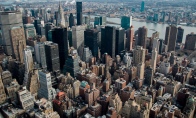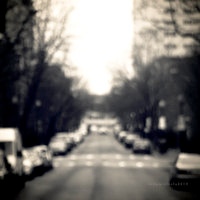- About Us
- Columns
- Letters
- Cartoons
- The Udder Limits
- Archives
- Ezy Reading Archive
- 2024 Cud Archives
- 2023 Cud Archives
- 2022 Cud Archives
- 2021 Cud Archives
- 2020 Cud Archives
- 2015-2019
- 2010-2014
- 2004-2009
 |
(July 2013) On City Life and Life in Nature |
There are two experiences of life, or living, that matter, and which are in direct opposition to each other. The life of solitude found in nature, where humans can be alone with themselves and with that spirit that exists in nature alone that returns man to himself when engaged with it is the first type of experience, the oft-forgotten one. The other experience, of civilization and society, represented by the city and its eternal movement and enduring anonymous population, is the other.
I have always infinitely preferred the constant motion of the city: the few faces in the swiftly moving stream of life that leave their impression on you with their beauty or their distinctly unique appearance, while all the others go unnoticed because your mind cannot handle perceiving a multitude of individualities as they pass by so quickly. You can only take in what immediately strikes your eye, and capturing that immediacy was the intent of the nineteenth-century impressionists. It is this, then, that I have discovered haunts and disturbs me—the transitory nature of life in the city; all things in the city resonate with an impermanence that is marked by the anonymity of the populace that lives, works, and plays there. For me, the city indicates life, and life indicates hope—the veritable indomitability of the human spirit, and it is this which gives the city its life, it is this which gives the city its “placeness” in living, breathing contrast to nature, which needs no humanity to give it life. In short, in order to live, the city can only breathe and become a place through human life, and through the anonymity and transient nature of that life.
Not too long ago I used to find the experience of city life engaging and exciting (which is not to say a part of me still doesn’t), but city life is ultimately empty when it goes unshared and when you see it change for the worse, instead of the better, right before your eyes. In the past I hardly ever enjoyed life in nature, maybe because it seems everyone thinks you have to actually do something in nature to enjoy or understand it, and get something out of it. It is fascinating that humans think they must actually be active in order to feel like they have done something or gotten something out of their experience of a new person, place, or thing. Why can’t human beings understand what I realized quite recently: that when in nature, or in a quiet place where solitude integrates with natural beauty, there is no need for you to do anything. Nature will nourish you and feed you with her spirit that is veiled in her landscapes and contours, if you only let her.
It is fascinating that humans think they must actually be active in order to feel like they have done something or gotten something out of their experience of a new person, place, or thing. Why can’t human beings understand what I realized quite recently: that when in nature, or in a quiet place where solitude integrates with natural beauty, there is no need for you to do anything. Nature will nourish you and feed you with her spirit that is veiled in her landscapes and contours, if you only let her.
This is very much a true sentiment in the vein of Wordsworth, Emerson, and Thoreau. It is in the stillness of the heart of Nature that the stillness of the heart of man is recovered, teaching humankind what is most important—a oneness with the self, and with Nature, from whom we are born, that cannot be taught to us by the city, in the height of a civilized, social experience that we have artificially forged. This is the problem found in all the artificial forms (art exempted) that man creates—what lies beneath the surface of these artifices and social constructions if the heart of man no longer beats as it once did in the natural world? The answer is nothing but a void, which the noise, anonymity, and constant movement of city life mask for the undiscerning individual. And more, none of these can satisfy the inherent hunger in human nature for a life of peace and fortifying labor that only Nature and the solitude we find in her can abundantly provide. This knowledge, and the transcendent spirit we return to when we commune with Nature, is the harvest we reap throughout the seasons of our lives. When we choose to enter the natural world and learn to listen to, breathe in, and become one with the solitude we find there, we become one with ourselves, and with the divine spirit that permeates all living things, helping us to realize what we are missing when we limit and confine our experiences to those only found in the city.
